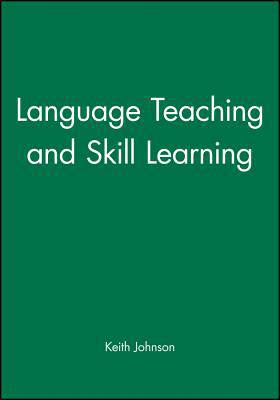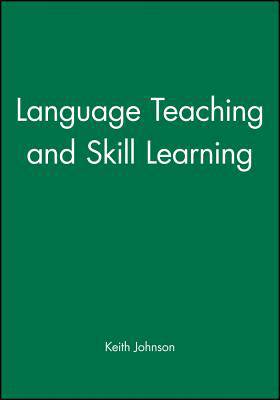
Je cadeautjes zeker op tijd in huis hebben voor de feestdagen? Kom langs in onze winkels en vind het perfecte geschenk!
- Afhalen na 1 uur in een winkel met voorraad
- Gratis thuislevering in België vanaf € 30
- Ruim aanbod met 7 miljoen producten
Je cadeautjes zeker op tijd in huis hebben voor de feestdagen? Kom langs in onze winkels en vind het perfecte geschenk!
- Afhalen na 1 uur in een winkel met voorraad
- Gratis thuislevering in België vanaf € 30
- Ruim aanbod met 7 miljoen producten
Zoeken
€ 88,45
+ 176 punten
Omschrijving
This book argues controversially that second-language acquisition has much in common with other forms of skill learning, and that there is much to be learned about the business of language teaching by considering the views and practices of teachers in other domains.
For many Applied Linguists, language is unique among human skills, incomparable in its acquisition and use to other forms of behaviour. Their study of second-language learning and teaching may thus draw on knowledge about first-language acquisition, but not on what is known about the learning of non-linguistic skills. This book argues against such an approach. It begins by considering arguments for and against the uniqueness of language. It reviews the recent literature in second-language acquisition, looking both at general learning theories (which account for language alongside other skills) and opposing theories (mostly based on the study of Universal Grammar). The book then turns to language teaching, and in a programmatic way considers what insights may be gained by viewing language within a general skills framework. Particular attention is given to how the teacher may help students to make consciously learned language automatic.
For many Applied Linguists, language is unique among human skills, incomparable in its acquisition and use to other forms of behaviour. Their study of second-language learning and teaching may thus draw on knowledge about first-language acquisition, but not on what is known about the learning of non-linguistic skills. This book argues against such an approach. It begins by considering arguments for and against the uniqueness of language. It reviews the recent literature in second-language acquisition, looking both at general learning theories (which account for language alongside other skills) and opposing theories (mostly based on the study of Universal Grammar). The book then turns to language teaching, and in a programmatic way considers what insights may be gained by viewing language within a general skills framework. Particular attention is given to how the teacher may help students to make consciously learned language automatic.
Specificaties
Betrokkenen
- Auteur(s):
- Uitgeverij:
Inhoud
- Aantal bladzijden:
- 208
- Taal:
- Engels
- Reeks:
Eigenschappen
- Productcode (EAN):
- 9780631168775
- Verschijningsdatum:
- 9/01/1996
- Uitvoering:
- Paperback
- Formaat:
- Trade paperback (VS)
- Afmetingen:
- 153 mm x 229 mm
- Gewicht:
- 335 g

Alleen bij Standaard Boekhandel
+ 176 punten op je klantenkaart van Standaard Boekhandel
Beoordelingen
We publiceren alleen reviews die voldoen aan de voorwaarden voor reviews. Bekijk onze voorwaarden voor reviews.









